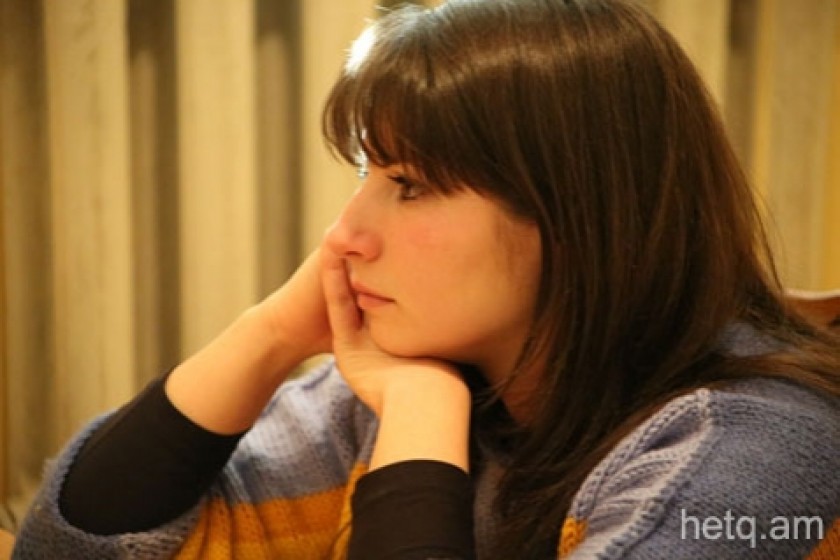
Finding Freedom in Art: Anastasia Paints to Fill the Void of Prison Life
“I want to see beauty in the things I create"
27 year-old Anastasia is one of the 200 women now serving time at the Abovyan Correctional Facility in Armenia.
Hetq was first told her story by Jasmine Ter-Hovhannisyan who for years has been teaching pottery classes for young women at Abovyan.
Anastasia has been at Abovyan for six years now after being found guilty of murder. She was 21 when she started to serve her 12 year sentence. Anastasia gave birth to a son while at Abovyan. He will soon turn six.
Anastasia is a painter and designer by profession and her works can be seen hanging throughout the prison.
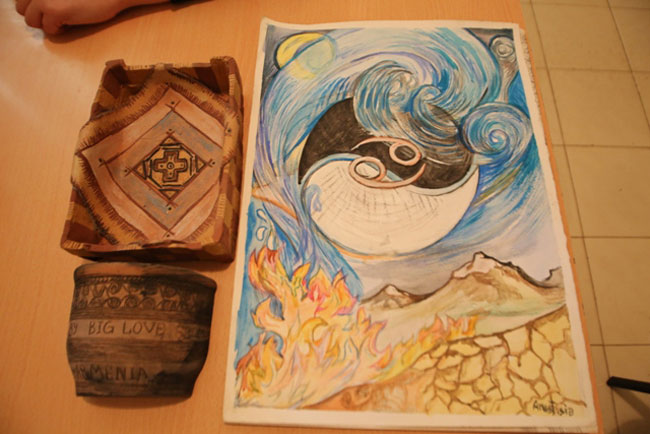
I spoke to Anastasia in a special room for visitors. I wasn’t allowed entry into the main prison facility. Anastasia entered carrying a bag full of her ceramics and paintings. She didn’t want to talk about the events that landed her behind bars. Rather we talked about freedom and dignity, of life in general, and her plans for the future.
I first asked Anastasia about her family. She said that as a child she always loved to paint. At Abovyan, she works as a designer in the carpet making unit and gets a salary. The carpets can be purchased at Yerevan’s Vernisage open-air market at the booth called “Jail Works”.
“What’s important for me isn’t the money but the fact that I can still create something in here and send it off to live freely on the outside, said Anastasia, who also teaches English to the other women inmates.
| “Sometimes reporters ask what I have taken away from life in prison. I always say that prison takes rather than gives. In my case, prison has taken my youth, my health and many things. Here, you only learn to stand apart and make due on your own. I’ve tried to fill the void with painting. To wind up in a place like this while pregnant was horrible. At first, I just rolled into a ball of self-isolation. I didn’t paint nor did I have contact with anyone for one year. I almost went crazy. I realized that I was headed for a psychological breakdown. Sure, I was consulting with the psychologist but the person must want to get back to normalcy. No one else can have an impact on your inner psychological state. There came a time when I just didn’t care anymore. They banned phone calls and visits for a year. |
Even after the ban was lifted, I still had no desire to see my relatives. It was later that I found my inner balance again. I created my own pastime – painting and needlework. I’m always busy now. I want to see beauty in the things I create. Even the handle of a broken cup has value. It can be incorporated into a beautiful miniature painting.” |
While Armenian law allows for children under the age of three to live in prison with the mother, Anastasia didn’t want her son to grow up so attached to her. She often sent the boy to live with family members.
Anastasia now sees her son four times a year. One of the visits last for three days. The other visits are just for one hour.
“The visits are tough on both of us. My son will just stand in the hallway when our time is up. He says he won’t leave without me. I really get disoriented after the visits. It’s as if I’m physically in prison but my spirit is outside. I’m caught in the middle somewhere,” Anastasia says.
When I ask where’s the first place she will go when released, Anastasia says to church and then to a place she’d rather not identify.
“You have to see the good in the bad if you want to live. You don’t have the right to give in. The charges against me don’t matter. I am struggling to prove that I am no longer that person who should be here. I am fearful of God.”
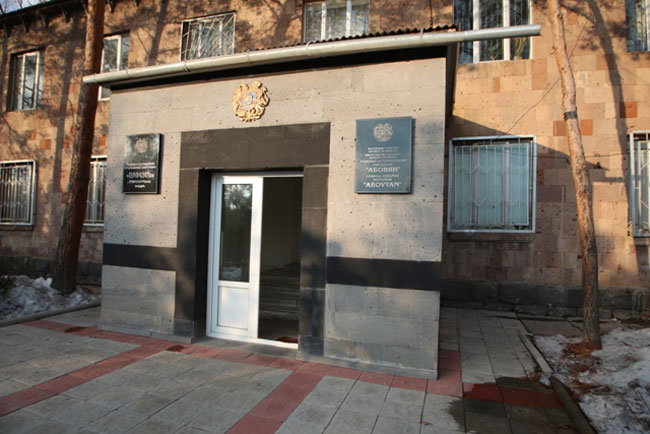 |
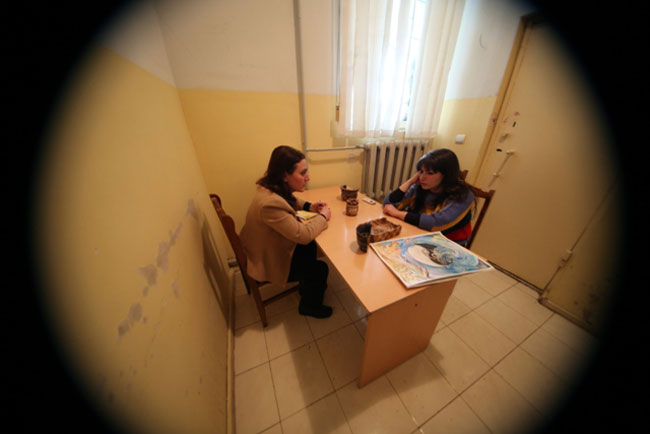 |
Anastasia was baptized at the Abovyan Correctional Facility. She tells me she was busy painting a portrait of Christ the entire night before the baptism.
She finds it difficult to call her fellow inmates criminals, preferring instead to describe them as individuals who, for a variety of reasons, have made mistakes. She says she has no right to pass judgment on others.
Before leaving, Anastasia told me that life in prison is an entire other world than life outside.
“After losing that life outside I have started to cherish everything. Here, you are obligated to cherish things that you do not value on the outside. And thanks to all who still believe in me.”
Photos: Saro Baghdasaryan
 Videos
Videos Photos
Photos




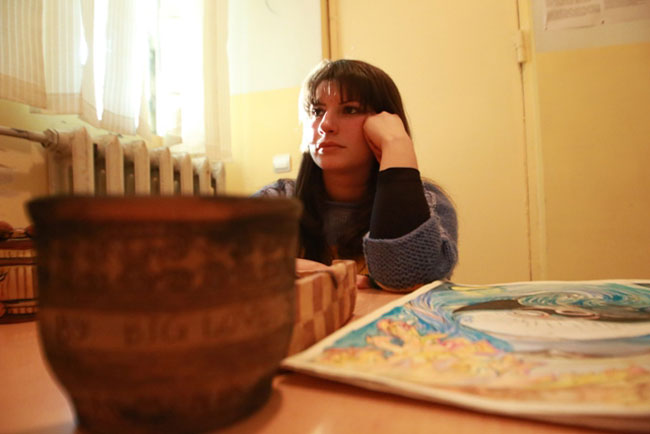
Comments (4)
Write a comment